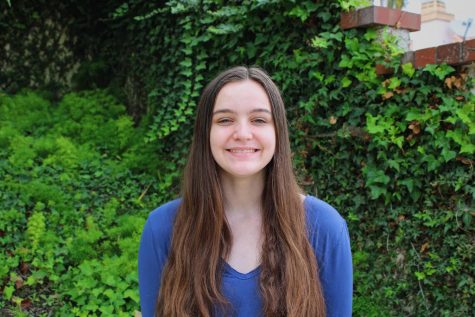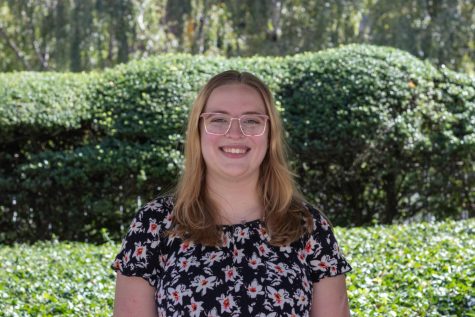Campus Ministry Calls Out Capitol Hill
The Fordham community will attend the Ignatian Family Teach-In for Justice in D.C.
October 16, 2019
In just a few weeks, Fordham students will join students from Jesuit institutions across the country and head down to our nation’s capital to participate in a historic event. Nearly 30 years after the El Salvador Massacre, Jesuit students around the country continue to protest for human rights on Capitol Hill. This event is now known as the Ignatian Family Teach-In for Justice (IFTJ), and is the largest annual Catholic gathering event for social justice.
On Nov. 16, 1989, the El Salvador Massacre occurred in San Salvador. In the end, an elite group of the Salvadoran Army killed a total of eight people, consisting of six Jesuits, their housekeeper and her 15-year-old daughter. This group of people became known as the Jesuit Martyrs of El Salvador. The assassins were trained at U.S Army’s School of the Americas (SOA) in Fort Benning, Georgia.
In 1996, Jesuits went to Fort Benning and began protesting in small groups. In 2010, the Jesuits decided to move the protest to Capitol Hill to honor those who died in the massacre by looking at the issues that they would have called attention to if they were still alive, now referring to the conference as IFTJ.
“It started in response to this horrific act of violence and saying how can we be beacons of light and hope and witnesses for justice in the world and respond effectively until there is the witness at the SOA peaceful march and memorial,” recalled Conor O’Kane, the director of campus ministry for mission extension. “And then this idea that over time asking this question that if the martyrs were alive today, where would they call our attention to?”
Although it is unclear how long Fordham has been participating in the event, Erin Hoffman, the associate director of campus ministry, stated that last year Fordham had the largest delegation and that she expects this will be repeated this year. Fordham’s delegation is made up of roughly 40 people, consisting of 35-40 students, staff leaders and two Jesuit Scholastics (men in their graduate studies, preparing for priesthood). At the moment, this year’s delegation has a total of 46 people from both Rose Hill and Lincoln Center, as it is a joint delegation. “For the first time that I know of, we have more Lincoln Center than Rose Hill students going this year which I’m very proud of,” said Hoffman.
Fordham students will travel to Washington D.C. from Nov. 16 -18. Over the course of the event, the delegation will attend keynote speeches given by scholars, entrepreneurs, philanthropists and activists. They also have a chance to interact with students from over 100 other Jesuit and other Catholic institutions during breakout groups that range in topic. Throughout the weekend, the Fordham delegation connects during reflection periods. Lillian Cruz, Fordham College at Lincoln Center (FCLC) ’20, described this time as “the most valuable because it allows us to talk about how we are feeling, what we’ve learned, what ideas we are struggling with and overall just have a safe space to talk about everything we were taking in.”
The Sunday night mass stands out as a special event to those who have attended in the past. O’Kane described the liturgy as “a great example of contemporary worship that is connected to the gospel call to social justice through the lens of Ignatian tradition.” The weekend culminates on Monday with Advocacy Day, on which the whole conference goes to Capitol Hill to speak to their representatives and advocate for change. This year the conference’s focuses are environmental justice and humane migration.
Previous attendees speak very highly of their experiences at IFTJ. Meg Johnson, FCLC ’20, said, “For me, the most valuable part of going was the conversations I had with other Fordham students about what we were most passionate about.” Many students described the community, fostered by working together to fight for common goals, as a major benefit of attendance, and something that remains after the delegation returns home. Cruz’s favorite part of the weekend was going to Capitol Hill — “I am from the D.C. area, but every time I go, I get so excited. It’s just an exciting place to be in and see.”
IFTJ has lasting consequences for both those who attend and Fordham community at large. For Cruz, the experience revealed a passion for politics. After attending, she became a political science major, saying, “I definitely want to work in immigration law and the Teach-In allowed me to figure out that I’m super passionate about that.”
Hoffman has seen how students “come back feeling empowered and hone their own citizenship, putting that into practice in little and big ways.” The IFTJ gives students experience in talking to their representatives and learning about how they can create change. O’Kane described how students return with “this idea that even in the face of overwhelming issues of injustice there are things that can be done, that there are ways in which people can gather together to think critically and hopefully and work together to enact positive change.” The overall goal of the event is to help students realize the effect they can have on society and encourage them to create positive social change.











